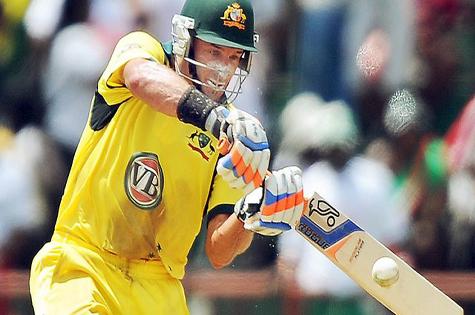The biggest and most influential sporting organisations in Australia have been criticised for signing "unhealthy" and high-profile sponsorship deals with beer and liquor companies, gambling agencies and fast-food chains.
A study by the University of Sydney's School of Public Health reveals nearly three-quarters of national and state government-funded sporting bodies are sponsored by companies promoting "harmful" products.
Companies promoting unhealthy food and drink were the most prevalent, sponsoring nearly 50% of Australia's main sporting organisations, followed by alcohol and gambling companies.
"Our research revealed a pervasive level of unhealthy sponsorship across our sporting codes," study researcher Rona Macniven said.
She says that associating these harmful products with sport makes eating fast food, drinking sugary drinks or alcohol and engaging in gambling as 'cool' and normal activities.
Ms Macniven's report was released the day after the A-League's Western Sydney Wanderers announced a sponsorship deal with a fast food company that sees a meal named after the club and served in dozens of locations in the western Sydney region. The 'Wanderers Meal' will include chicken nuggets, a large hamburger, large french fries and a large sugary drink.
Food experts said the meal accounts for 70-75% of an average person's recommended daily calorie intake, and twice the amount of salt, and the critics said a 10-year-old child would have to play football or another similarly active sport for 10 hours to burn off the calories from that meal.
Despite an international reputation for its sporting success and outdoor lifestyle, Australia has experienced a surge in the rate of obesity.
The Australian Institute of Health and Welfare reports that three-in-five adults in Australia are overweight or obese, and the overall number of obese or overweight people has increased by 5% since 1995. The Institute also reports that one-in-four Australian children are overweight or obese.
Ms Macniven said there were 14 mainstream Australian sports groups which had no unhealthy sponsorship tie-ins, including cycling, swimming and triathlon.
Cricket Australia, which features a beer company logo on the shirts of its limited-overs international team, was considered by Ms Macniven's study to be the worst offender. The beer company is Cricket Australia's 'platinum' sponsor with smaller sponsorships including a gambling agency, fast-food outlet and sugary drinks.
But the NRL, the AFL and FFA are not far behind according to Ms Macniven - as are some of their clubs (not just Western Sydney Wanderers).
The NRL has beer, bourbon, soft drinks and fast-food sponsors, and the AFL has beer and a soft drink company. Football Federation Australia has a gambling sponsor, is open to alcohol sponsorship, and last week announced a new program called Play Project to encourage primary school children to participate in physical activity.
Play Project is wholly funded by Mondelez International - formerly Kraft Foods and Cadbury - and is part of an international program to mitigate against the negative impact of kids consuming their confectionery and other non-healthy products. Mondelez also has an adults program known as 'mindful snacking'.
Ms Macniven said that children are heavily influenced by sports sponsorship and the messages and pictures coming out of the major sports. She has called for greater consistency in aligning sport policy with health policy.
“We need to see this level of exposure to unhealthy messages through sport reduced – particularly among Australian children – through regulatory guidelines or policy to limit unhealthy sponsorship,” Ms Macniven said.
* * *
I have also written a comment piece about the paradox of sports sponsorship, and the challenges to grassroots sport, here.








 Agree (0)
Agree (0) Disagree (
Disagree (











__small.png)










